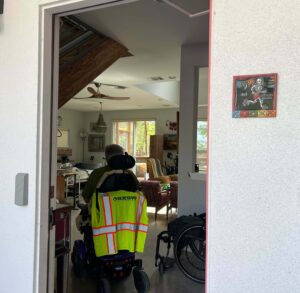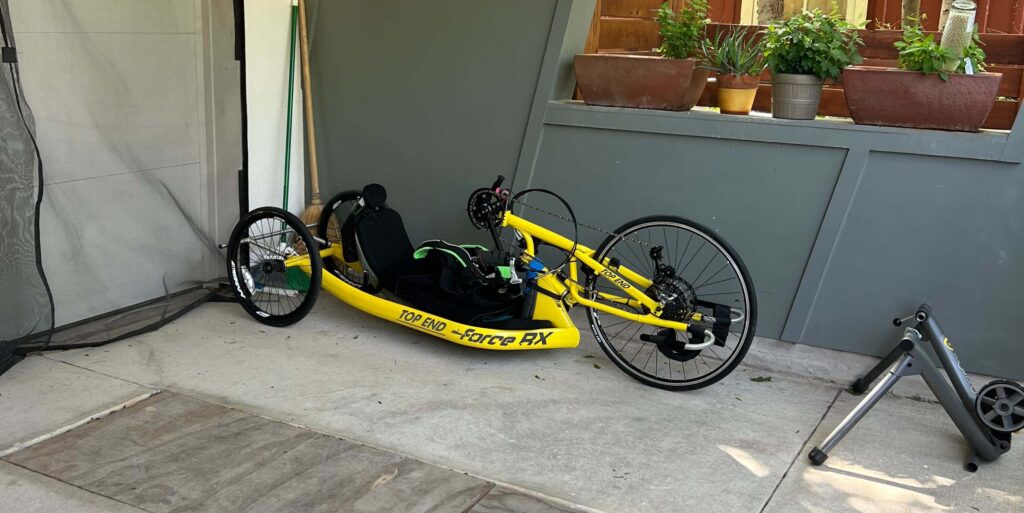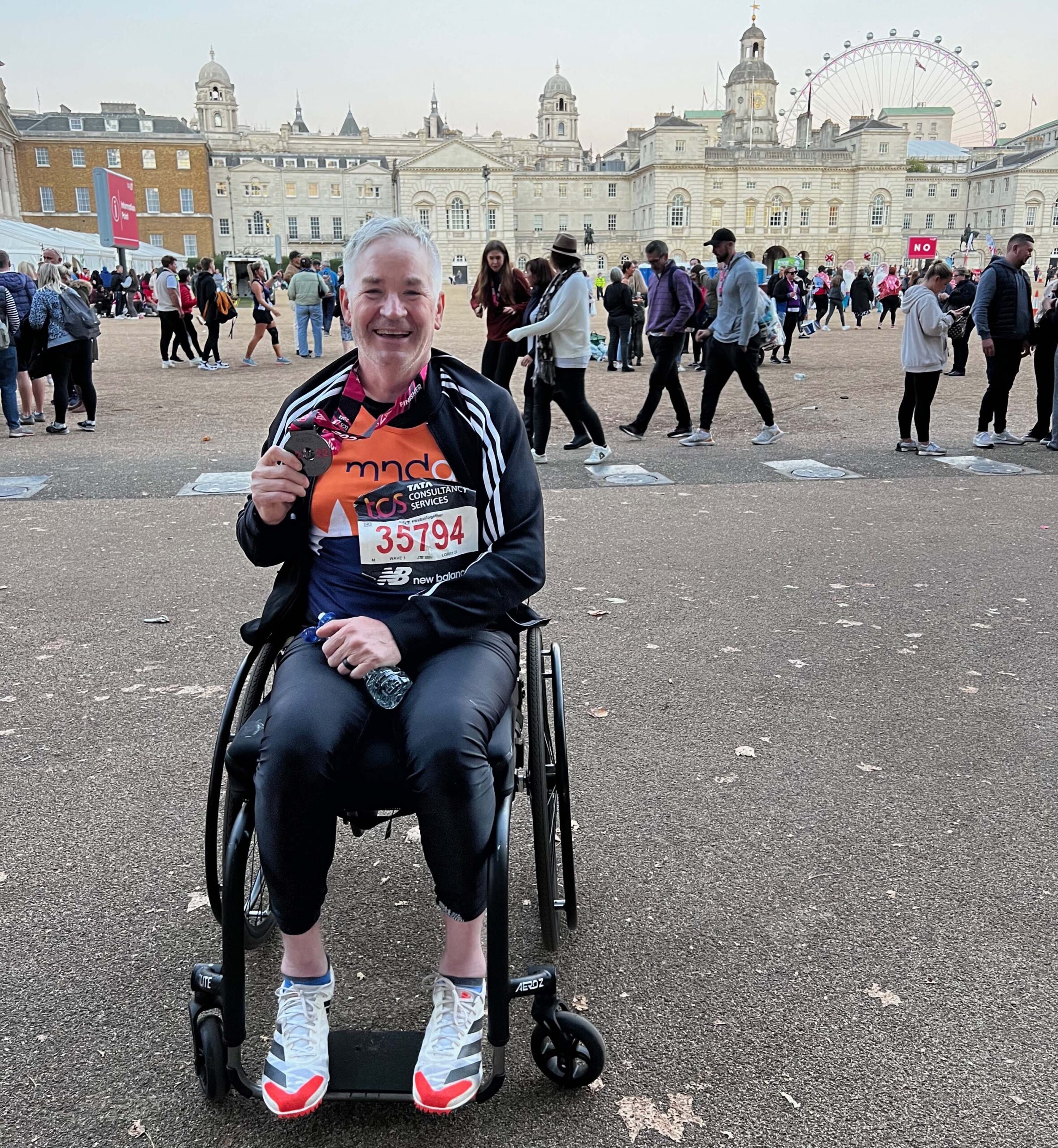It was in the spring of 2021 that Bill Corrigan first started to notice that something was off.
“I was training to do some trail running,” Corrigan said. “And I kept tripping and falling down.”
This sudden clumsiness came as a surprise to the Austin resident, who has been a runner since 2006 and has done more than a dozen marathons – including four world majors – in places like Portland, Chicago and New York.
“I never did the Austin full marathon,” Corrigan confessed. “I signed up like five or six times, and I didn’t train enough for it, so I scaled it back to do the half.”
Then came the Berlin Marathon in the fall of 2021.
“I thought I was going to do it in four hours, and it took me six,” he said.
Just a few months later, Corrigan was diagnosed with amyotrophic lateral sclerosis (ALS), a disease that over time causes the motor neurons in the brain to lose connection with the muscles in the body. ALS is a progressive neurodegenerative disease with no known cure. Treatments focus on slowing the progression.

Bill Corrigan at his East Austin home.
Sean Saldana / Texas Standard
To Corrigan, ALS stands for adaptive lifestyle, which is why after his diagnosis, he went on to do the London Marathon in a racing wheelchair.
“I got a wheelchair coach,” he said. “It took me eight hours, but I finished.”
Since then, Corrigan’s ALS has progressed, and he no longer has the strength to do an entire marathon in a racing wheelchair – so he’s switched to handcycling.
“It’s like a bicycle, but you use your hands to control it,” Corrigan explained. “And so I trained in that.”
On April 15, Corrigan will handcycle in the Boston Marathon on behalf of the Muscular Dystrophy Association, a health organization that supports people living with muscular dystrophy, ALS and related diseases.
Leading up to the race, Corrigan has raised $11,103 for the association, funds that “directly fuel ALS research, specialized multidisciplinary clinics across the country and advocacy,” Chief Marketing Officer Morgan Roth said in a statement.

Bill Corrigan’s handcycle.
Sean Saldana / Texas Standard
Three weeks out from race day when interviewed by the Standard, Corrigan was realistic but determined.
“I’m getting pretty weak. I don’t know if I’ll be able to finish it, but the attitude that I’m taking is no plan B,” Corrigan said. “I’m going to be out there in Boston, and the sun’s going to set, and it will be a day. And whatever happens, happens.”
Due to the progression of his ALS, the Boston Marathon will also be Corrigan’s last.
“What you do and accomplish is not who you are,” he said. “I can’t wrap up my identity in marathoning. It’s something I’ve done for a while, and I’m gonna go on to other things.”
Corrigan heads to Boston with the support of his friends and family.
This story is part of the Texas Standard’s yearlong commitment to featuring the voices of and covering the topics important to disabled Texans.














